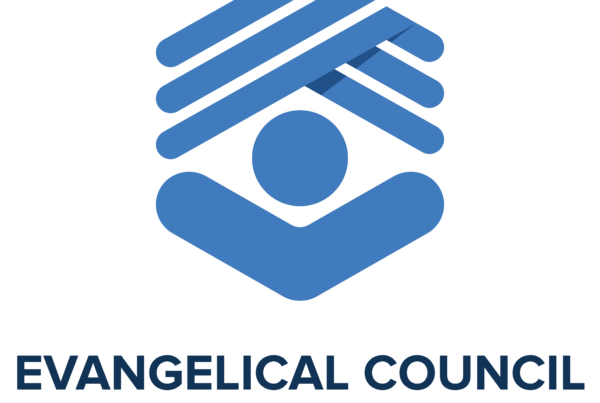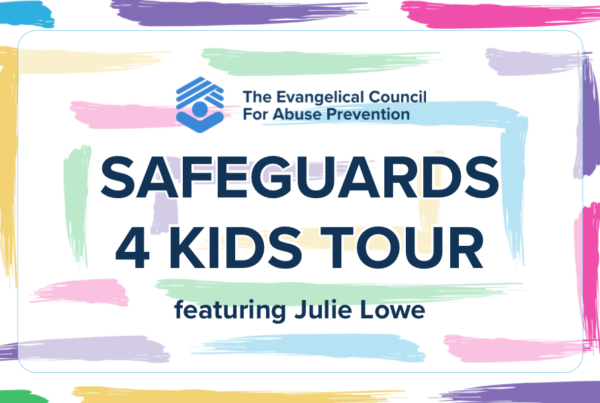Why do we struggle so much with reporting child abuse to the authorities? What makes this especially hard within the church and in Christian ministries? I have worked for more than 25 years as a mandated reporter and filed countless child abuse reports. In my tenure as program director of a youth shelter in Hollywood, California, I would often make as many as five reports a week working with the run-away and forgotten youth population. Even with my experience in reporting abuse, each individual case creates tension and discomfort. The disclosure of abuse impacts entire systems and brings disruption to individuals, families, and communities. The reality of this disruption often creates a barrier to reporting, particularly when there is an allegation of abuse within the church or in a ministry setting.
Recent news highlights countless stories of churches and ministries that have chosen not to report in attempts to handle allegations of abuse “internally” and secretly. Oftentimes these decisions are made in hopes of protecting the reputation and mission of the ministry. Unfortunately, in attempting to protect the ministry or organization, we do great harm to the victims and inadvertently protect the abuser, potentially enabling future abuse. The best way to protect the church and ministry is to be prepared with policies and procedures that support child safety. Resist the urge to deal with the sin internally and discreetly, and instead, follow the law in making the legally mandated reports with Child Protective Services and Law Enforcement.
Research from the Centers for Disease Control and Prevention estimate that one in four girls is sexually abused by the time they are 18, and one in six boys has been sexually assaulted by the age of 18. The church and Christian ministries are not excluded from these statistics. According to studies conducted by Christianity Today, an average of 70 allegations of child abuse are reported in churches each week. In fact, we have all witnessed in recent years the alarming number of reports of abuse within the church. It is essential for churches to train those who work with children and adolescents to manage accusations of child abuse appropriately, both in how to compassionately care for the child or adolescent making the accusation as well as how to file a report to Child Protective Services.
We are also wise to develop policies and procedures for church staff, employees, and volunteers that establish clear guidelines and best practices that reduce the potential for abuse. Our diligence can prevent abuse. Within church communities, there are many opportunities to serve that provide access to children. From my experience, churches often struggle to find reliable volunteers to support the vast needs in children and adolescent ministry. As a result, this need can create opportunites for those who abuse to have access to children. Strategies that require mandatory screening and background checks can effectively deter abusers. Don’t be afraid to ask tough questions when interviewing staff or volunteers who might work with youth. I am grateful to have been a part of developing the Child Safety Standards for ECAP that can assist ministries in developing policies and procedures that protect children. ECAP has done the work for you! These are simple strategies that, when implemented, help protect your ministry and assist in creating a safe place to focus on the spiritual formation and discipleship of our youth.
Finally, a personal history of abuse impacts our view of God and our spiritual formation. As Van der Kolk, M.D. notes in his book, The Body Keeps The Score, the impact of trauma is on the whole person: mind, body, and spirit. Child abuse can cause people to stumble in faith and doubt God’s goodness, particularly when the abuser is a member of the church, and especially if the abuser is not brought to justice. Christians who abuse cause a distortion of God that exponentially increases the shame, confusion and trauma of abuse. Even though filing a child abuse report is difficult, healing can only come when truth is revealed. In my private practice, many clients revealed their history of sexual abuse or trauma after more than 30 years of silence. As they endured their silent suffering, the trauma of their abuse continued to impact faith, relationships, and it prevented thriving. Jesus’ sacrifice redeems the deepest brokenness, and by walking in truth, we can help to bring healing to those who are suffering. As a clinician, I have personally watched Christ bring healing and restoration to both victims and perpetrators when God’s people have the courage to both notice and report abuse. Let each of us grow more diligent in keeping watch over our ministries. ECAP has done a great work in creating Standards that protect children and youth from abuse within our ministries. You can learn more about the resources available to set up simple and effective strategies that deter abusers and protect the most vulnerable in our ministries.
For state-by-state andated reporter laws, you can visit this article.
For state-by-state information regarding CPS and contact information, you can visit this site.





